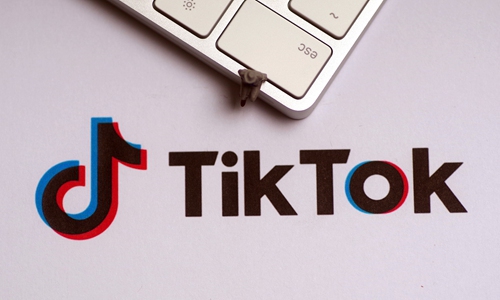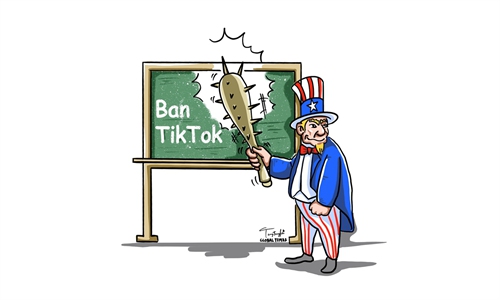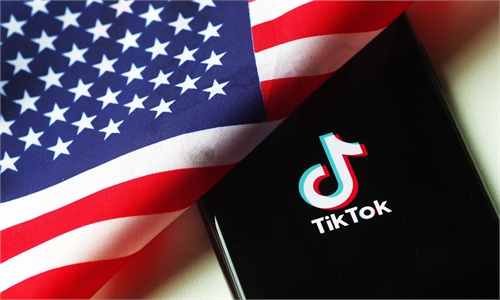
Illustration: Chen Xia/Global Times
Despite previous setbacks, TikTok has revived its e-commerce business in Indonesia. This, to some extent, reflects TikTok's ability to deal with risks arising from local policy changes, and, more importantly, it shows that an open market is always a "positive asset" for economic development. Some policymakers, in particular those in the West, are incorrect in viewing Chinese high-tech companies from the perspective of geopolitics and zero-sum competition.In September, Indonesia banned commercial transactions on social media platforms, citing the need to protect small businesses' and users' data. TikTok halted its e-commerce feature, TikTok Shop, on October 4 to comply with the new rules. However, the move didn't benefit small and medium-sized enterprises (SMEs) in Indonesia. On the contrary, the forced departure of TikTok Shop disappointed many Indonesian merchants and consumers, with analysts saying that it would undermine the growth of the Indonesian e-commerce sector, thereby causing more losses to SMEs in the country.
Indonesia has 125 million TikTok users, which makes the country the largest Southeast Asian market for TikTok and second-largest global market after the US. If TikTok shops are closed, many expect it will affect the livelihoods of the 6 million sellers and nearly 7 million affiliate creators who use TikTok Shop.
TikTok agreed on Monday to revive its e-commerce arm in Indonesia by investing $840 million to buy most of Indonesian tech conglomerate GoTo's e-commerce unit, Tokopedia, according to media reports. The purchase appears to allow TikTok to restart its online shopping business in the country.
This is good news for sure, in particular for SMEs. On the sellers' side, more SMEs are switching to e-commerce. As known to all, e-commerce platforms allow SMEs to increase their profit margins while lowering operational costs, expanding their customer reach and using targeted marketing strategies to improve customer conversion rates.
GoTo Group is Indonesia's largest internet technology company. GoTo's cooperation with TikTok can bring tangible benefits to Indonesia's e-commerce market. More intense competition will promote the overall development of the e-commerce industry.
The cooperation came during the Double 12, a shopping festival that is gaining importance as an independent shopping festival in China. Now China and Indonesia have large potential for cooperation in the field of e-commerce and cross-border e-commerce businesses. Indonesia's internet company should adopt various marketing methods, including cooperation with Chinese firms and online shopping festivals, to stimulate the development of the local e-commerce industry.
Following TikTok's recent announcement of boosting investment in Indonesia, questions come to mind. Can China and Southeast Asian countries further integrate each other's huge consumer markets via e-commerce platforms? Can Indonesia attract more Chinese e-commerce companies to invest and become a magnet for Chinese internet companies to invest in Southeast Asia?
Indonesia has about 270 million people and is one of the fastest-growing e-commerce markets in Southeast Asia. Hopefully, Indonesia can encourage Chinese internet companies to invest, ensuring a fair and transparent environment for foreign companies. An open market will become a catalyst for the development of Indonesia's e-commerce and internet industries.
According to the US International Trade Administration, Indonesia's e-commerce market had more than $30 billion in gross market value in 2020, which is expected to rise to $83 billion in 2025. Despite increasing competition, much of the potential in Indonesia's e-commerce industry has not been achieved, especially in cities outside of Java. This provides opportunities for more cooperation among internet companies in China and Indonesia.
The author is a reporter with the Global Times. bizopinion@globaltimes.com.cn



